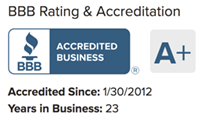Indeed, Arizona has some hazardous scorpions, especially the state’s most venomous species, the Arizona bark scorpion (Centruroides sculpturatus). Although not usually fatal, its sting can cause excruciating agony and anguish, particularly for susceptible groups including youngsters, the elderly, or those with weakened immune systems.
Neurotoxins found in the venom of Arizona bark scorpions can result in a variety of symptoms, from mild ones like numbness, swelling, and localized discomfort to more serious ones like breathing difficulties, muscular spasms, and even momentary paralysis. Although fatalities from scorpion stings are exceedingly rare, they can occasionally result in life-threatening complications.
It’s crucial to remember that different kinds of scorpions in Arizona have varying degrees of venom severity, so they’re not all equally harmful. All scorpions, meanwhile, have poisonous stings, so you should handle them carefully.
Sealing your home is the best way that Phoenix homeowners can prevent scorpions from entering. Should scorpions enter your home, you can reduce their risk of scorpion stings by taking preventative measures like shaking out shoes and clothing before wearing them, being cautious when extending your reach into obscure or dark areas, caulking entry points to keep scorpions out of their homes, and wearing the proper protective gear when working outside or in areas where scorpions are present.
It is important that anyone stung by a scorpion seek medical assistance, particularly if the symptoms are severe, the victim is a youngster, or the victim has underlying medical issues. Treatment as soon as possible can help reduce symptoms and avoid problems.

